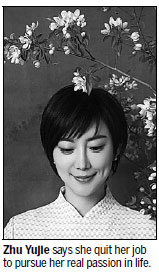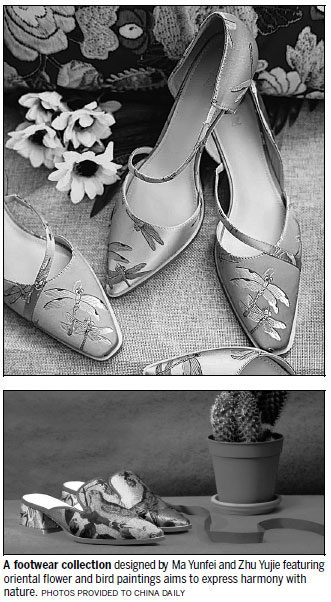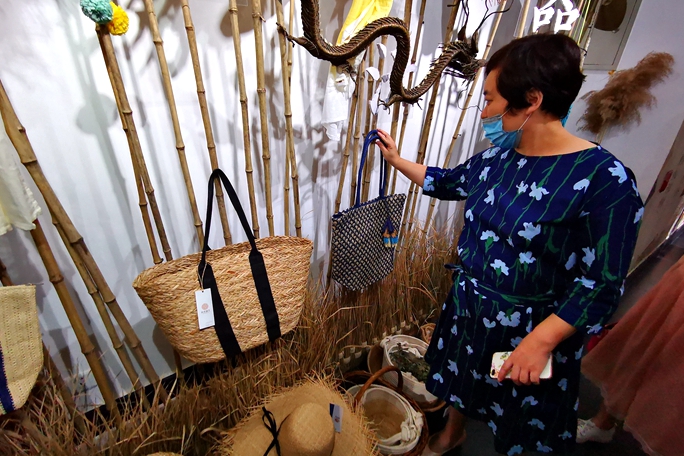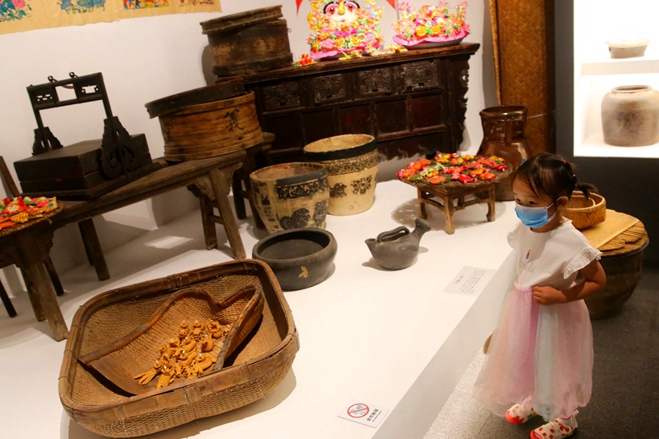From the summit of success to real joy
It took Zhu Yujie three years and uncountable sleepless nights to reach the position of features director of the Chinese version of the fashion magazine Harper's Bazaar.
Then she quit her job in the spring of 2015 to study culture criticism and curation at Central Saint Martins in London.
"The pursuit of success has screwed up mainstream values," Zhu, 30, says.
"Many may consider doing things simply out of interest or curiosity a waste of time, but you can never tell how life might inspire you."

Zhu had three assistants to take care of the minutiae of life such as buying her coffee. Gifts from public relations firms piled up on her desk, and people eager to please her because of the position she held jostled for her attention.
So in her field Zhu had "arrived".
Two words that come readily to her mind when she talks about that life are busy and vanity.
"People used to join me for breakfast or to go jogging to talk about work. Part of me enjoyed it but another part of me said it was too much."
When friends heard she was going to abandon that lifestyle to become a student again many were incredulous and only a few took her at her word when she kept on saying that she was merely pursuing her real passion.
Zhu, born in Jinan, Shandong province, says she was no different to most Chinese trying to cope with fierce competition, and she always tried to be the top student or the most loyal and dependable employee.
In school, she says, her pursuit of good marks in exams all but killed any joy she might have had in learning. Art was considered to be a subject with no practical application, she says.
"In taking up art studies I was striking back at my previous life."
Hu Xiaohe, a high school schoolmate, describes her as idealistic and stubborn.
"She knows that in this day and age it's all the fashion to be full of yourself, and she knows what it is to have no control over your life, so she chooses to get in touch with inner truth through art."
Zhu once wrote that "if one's happiness lies in being envied by others, being a name on Fashion Week's invitation list and buying luxury brand limited editions ... it can only mean you have not really tasted how sweet life can be".
Zhu says she enjoys wandering through museums and galleries in flat shoes, with a simple canvas bag hanging from her shoulder, lying down on the lawn by a riverside and chatting till the moon rises in the sky.
Thus, she says, she feels she has now tasted how sweet life can be.
Eager to let others know about her experience in living a life of choice, Zhu set up a public account on the social media platform WeChat in October 2015.
She tells how various people who break the mold such as: a friend who sold her house in Beijing and moved to Dali, Yunnan province, so that her daughter could play around a real mountain; of a man who indulged his passion for plants for more than 12 years; and of the woman who lived in different homestay places for 606 days.
At the same time, she established an art studio producing beautiful things. She defines this as "an aesthetics life house", a commercial way of awakening people to a delicate life.
The studio sells a wide range of commodities, including hand-painted plates, candles and handbags.
Tapestry shoes designed by Ma Yunfei, 24, are one of the best sellers in the studio's online store.
Ma studied fashion design for three years at the Beijing Institute of Fashion Technology and three years at the London College of Fashion learning footwear design. Now she is studying accessory design at the Royal College of Art in London.
Together, Zhu and Ma are keen to give full play to oriental beauty in their modern designs.
Their first footwear collection, launched in August last year, was inspired by oriental flower and bird paintings and, they say, aims to express harmony with nature. Black, yellow and lake blue are the main colors. Typical Chinese painting elements such as the dragonfly and bird are embroidered on the vamp.
The second collection came out this year under the name Where Paths Meet. Zhu and Ma say it carries the wish of people to reach a place that is open and clear.
The inspiration comes from a poem named Xiayi that came to her after an afternoon nap. The poem was written by the poet Su Shunqin of the Song Dynasty (960-1127). Through verse he tells of a cool bamboo mat in a quiet yard, a red pomegranate blossom outside the curtain, shades of trees, a bird's song that awakens him from his nap and his easy and peaceful life.
"Zhu and I think that people have become too utilitarian and too busy," Ma says.
"They have no sense of being aware of what surrounds them."

(China Daily 10/05/2018 page5)

 Shandong Culture and Tourism Consumption Season
Shandong Culture and Tourism Consumption Season Culture, tourism sectors pick up in Shandong as epidemic wanes
Culture, tourism sectors pick up in Shandong as epidemic wanes

